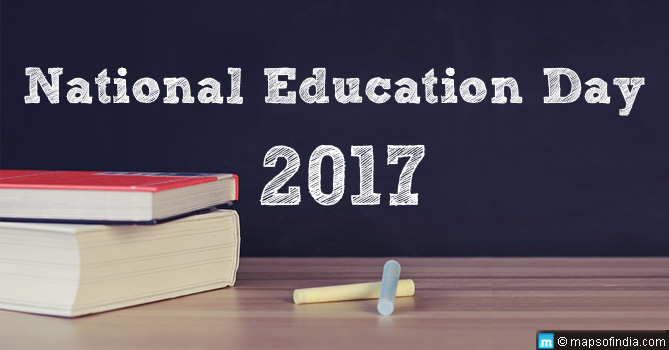“Real education enhances the dignity of a human being and increases his or her self-respect. If only the real sense of education could be realized by each individual and carried forward in every field of human activity, the world will be so much a better place to live in.” – APJ Abdul Kalam, 11th President of India.
The central role played by education in the progress and growth of a nation can hardly be denied. Education is often referred to as a bank from which society encashes its development. Regular deposits must also be made into this bank. This can be in the form of the government’s focus on education and society’s emphasis on universal and liberal education as well. This year, as National Education Day approaches, let us take a look at the education reforms planned by the government of India.
National Education Day
Before we delve deeper into the educational reforms proposed by the government, let us take a look at the National Education Day commemoration that is to be held on 11 November. It is the birth anniversary of India’s first Education Minister Maulana Abul Kalam Azad. This year the University Grants Commission (UGC) has sent a communication to the country’s universities asking them to organise events commemorating the day. These events are likely to include various seminars, workshops, and meets. Some universities shall also be organising rallies and competitions to mark the event. The country is likely to celebrate National Education Day on an unprecedented scale. To mark the occassion Central Board of Secondary Education (CBSE) has also asked its affiliated schools to revise its programmes to reflect its inclusive education agenda.
Maulana Abul Kalam Azad
Maulana Sayyid Abul Kalam Ghulam Muhiyuddin Ahmed (1888-1958) was a renowned Indian scholar and freedom fighter who remained very deeply involved in the freedom struggle of the country. He wrote revolutionary articles urging the youth of the country to join the freedom movement and adopted the pen name Azad (Free) thus earning him the name Maulana Azad. When India shed the British yoke, he became the country’s first Minister of Education, an office he held between 15 August, 1947 and 2 February, 1958. Maulana Azad’s commitment to universal and girls’ education in the country is legendary. It is under his leadership that well-known educational institutions such as IIT, School of Planning and Architecture, and the University Grants Commission were set up.
New Education Policy in December
Union Minister of State for Human Resource Development, Satya Pal Singh announced that the government will soon be coming up with a new education policy. The final details of the policy were being fine-tuned, he said at the National Academic Meet organized in Kerala. Despite seven decades of having gained independence, our education system still follows a colonial mindset. The new education system will do away with this British legacy and customize education to suit the specific needs and the context of Indian social values, said the minister. India is now a global power in its own right and is a manufacturing and services hub for the world. It is likely that the education reforms that the government has in mind will stress on vocational training and skills development.
To reach the high levels of education that India wishes to achieve, we must first focus on primary education. Not only must primary education be universally available but the quality of primary education too needs a great deal of improvement, said the minister.
The government also plans to increase access of Indian students to higher education in the country thus preventing “brain drain” or exodus of intelligence to foreign countries. In India only 256 percent students could apply for some form of higher education but the availability of higher education in countries such as the US is pegged at about 86 percent. In Germany this is at 80 percent and in China it is about 60 percent.
Affordable education and universal education is another key area that will be highlighted in the upcoming policy, said the minister. While the Right to Education is now a fundamental right (since the Parliament passed the 86th Constitutional amendment in 2002), there is still no redressal mechanism when this right is violated. For example if the parents of a girl child do not send her to school, there is no system of securing her right to go to school. This shall also be addressed by the new policy said the minister.
More Information on Education
Top Engineering Colleges in India





